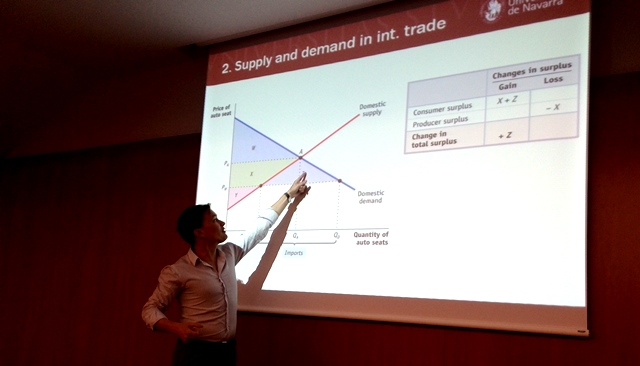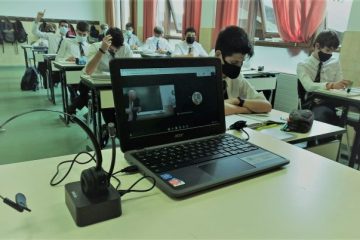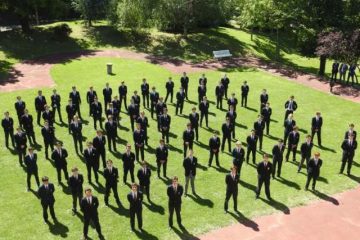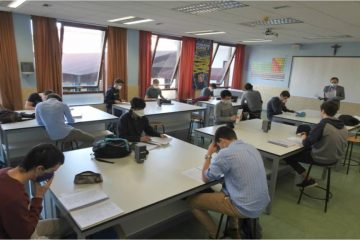On Monday 26th the Social and Humanities students of 2nd Baccalaureate attended an English talk on Free Trade and Social development. The guest speaker was Dr Martin Rode, German professor actually teaching at the Faculty of Economics (University of Navarra). Professor Rode talked on supply and demand in trade, consumer and producer surplus, the difference between imports and exports of different countries, their GDP and other interesting topics.
Some examples given by the speaker, as all related to the Smartphones market (production, distribution and price) made it easy for the students to attend and understand him. Not only did they learn what TTIP (Transatlantic Trade and Investment Partnership) meant for the economy of the European Union, United States, Canada and Mexico. The speaker also analysed reasons in favour and against free trade for our society from an economical and social point of view. At the end of the session some questions were asked to professor Rode. The students were also given the chance to take an insight in an university class for their near future, which was for the students particularly interesting.
Martin Rode is currently Assistant Professor of Economics at the University of Navarra in Pamplona with a huge experience at different universities. Before his time in Navarra he was a doctoral research fellow at the University of Cantabria in Santander, from where he also received his doctoral degree in Economics. He further holds two undergraduate degrees from the University of Innsbruck (Austria), one in Economics and the other in Political Science. In the course of his doctoral studies, he spent considerable time at Florida State University (USA), focusing his research on the relationship between democracy, institutions and economic outcomes. His recent investigations broadly center on the consequences of democratic transitions for economic freedom and the institutional economics of happiness. He has published articles in Applied Economic Letters, Constitutional Political Economy, the European Journal of Political Economy, and the Journal of Happiness Studies.



